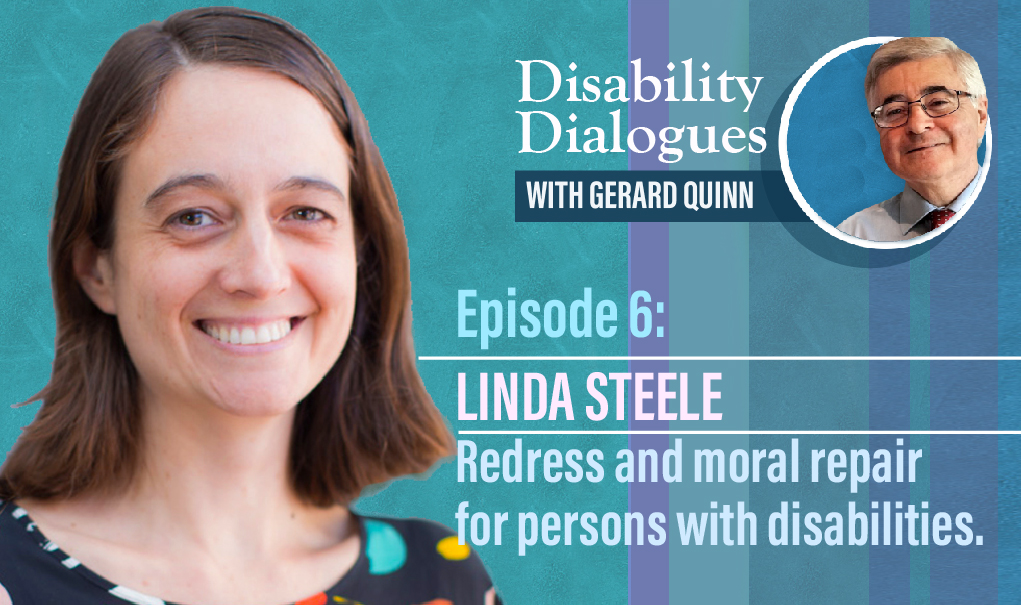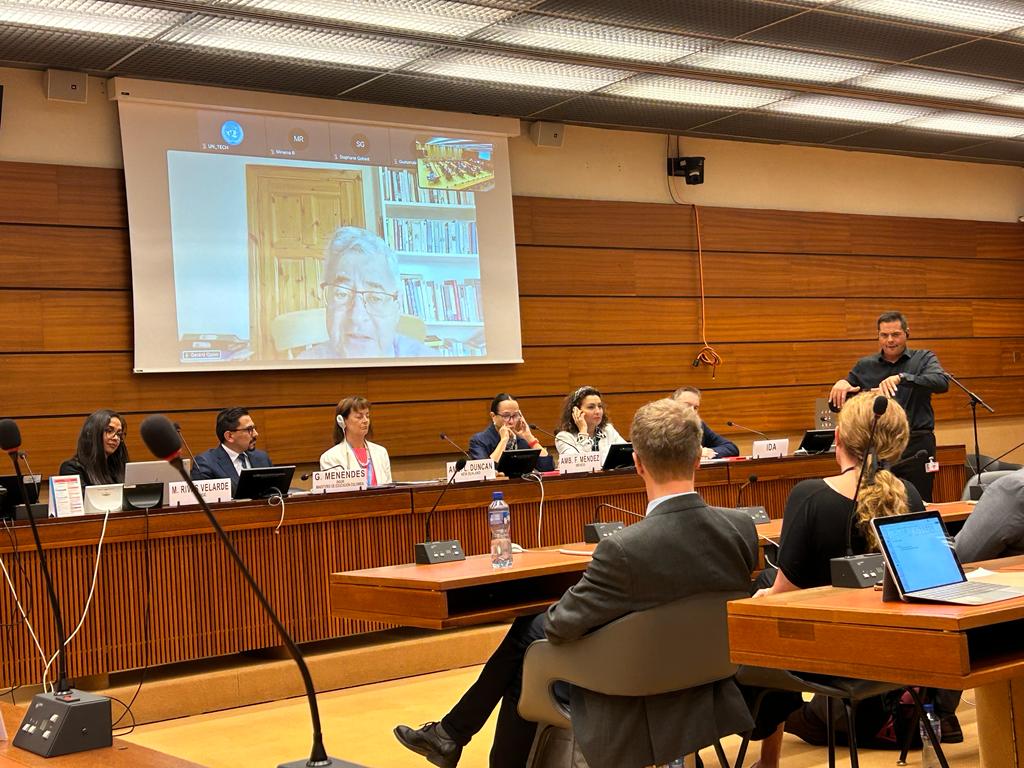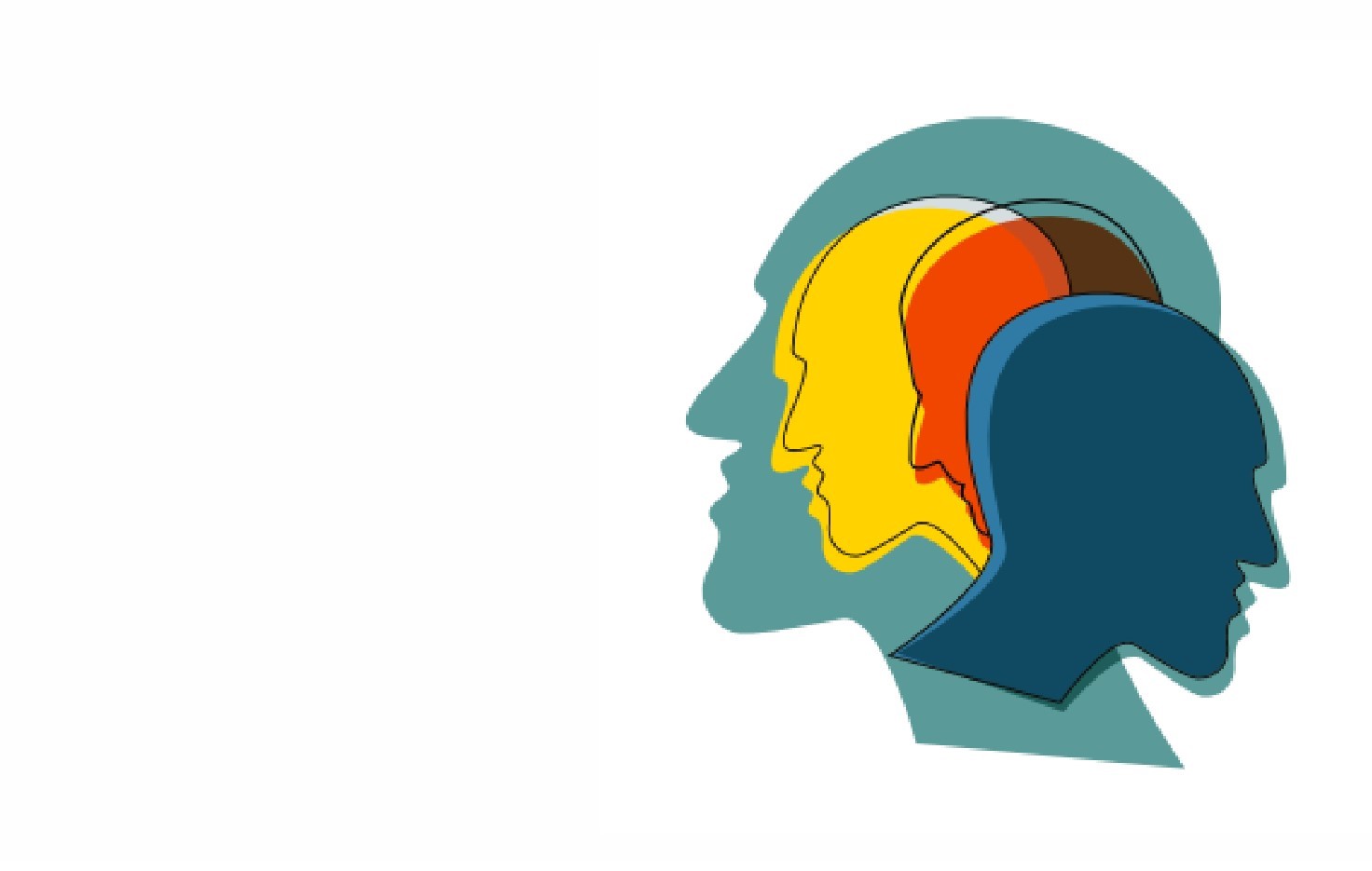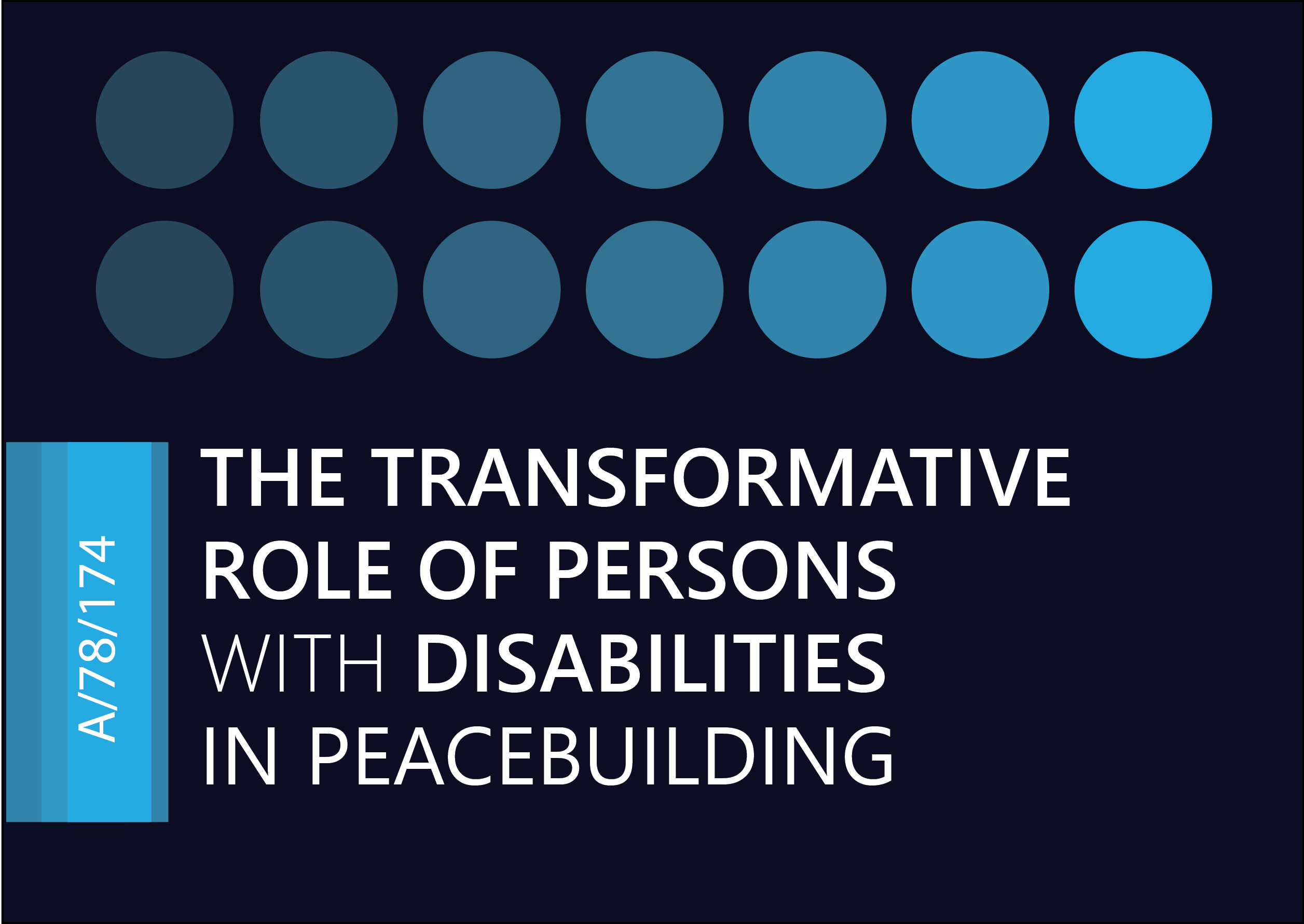Many Governments around the world need development assistance to give flesh and bones to the UN convention on the rights of persons with disabilities. The World Bank has a crucial role to play in assisting them.
With 189 member countries, the World Bank is one of the most important international development organizations. Since its creation in 1947, it has funded over 12,000 development projects, via traditional loans, interest-free credits, and grants.
In 2018, the Bank adopted a groundbreaking framework to include people with disabilities and their rights in its projects throughout the world. It proposed what is known as the “twin track approach”: on the one hand, promoting the “mainstreaming” of disability across all projects and investments, and on the other, promoting investments directed to people with disabilities and their specific needs. On this podcast, host and UN Special Rapporteur on the rights of persons with disabilities talks with Charlotte McClain-Nhlapo, Global Disability Advisor of the World Bank Group and one of the authors of its disability inclusion framework.
Transcript
Gerard Quinn: Welcome to Disability Dialogues, a series of conversations with leaders and activists from around the world who are advancing the rights of persons with disabilities. In this series, we will hear from people who are playing a significant role in advancing the disability rights agenda in the global system, in their regions, and at home in their own countries. We will explore success stories as well as challenges. I am your host, Gerard Quinn, the UN Special Rapporteur on the Rights of Persons with Disabilities.
In our first podcast, I interviewed Gopal Mitra, who is in charge of making the UN system lead by example throughout all its activities in the world. Today, we build on that by welcoming Charlotte McClain-Nhlapo, who is the Global Disability Advisor in the World Bank in Washington DC.
Many governments need development assistance to give flesh and bones to the UN Disability Treaty in their own countries. And the UN Disability Treaty is almost unique in obliging development assistance programs to be inclusive of persons with disabilities, a sea change from the past.
Welcome Charlotte. We always try to start our podcast by asking our guests to tell our listeners just a little bit about your own life story, your early life, and how you eventually came to work at the World Bank.
Charlotte McClain-Nhlapo: I grew up during the ghastly years of apartheid in South Africa, and this was an important aspect of my life because my father is white American and my mother's from the tribe of the Casas, so she's black. And when they were married, there was a law in South Africa that prohibited marriage or unions across colour lines. And that act was codified in the Immorality Act of 1927. And so you can imagine it was not possible for my parents to live as a family, as a married couple in South Africa. And so we lived in various neighbouring African countries that had been independent or that had recently received independence. So we lived in Zambia, we lived in Lesotho, and then I went to high school in Swaziland, today known as Eswatini. My parents were very involved in the struggle to fight... Against apartheid. And so from a very early age, I was acutely aware of the injustices of discrimination. And I knew from a very early age that I wanted to do something about it. And so I decided to study law. And I thought about law as a tool to fight discrimination. I thought about law as a tool to bolster social justice and effect social change. And I guess this was the best decision I ever made.
And so after law school, I went and joined a think tank at a university in South Africa where I was a researcher on child rights. And in that capacity, we provided input to the development of the South African Constitution, which was in the process of being made at the time.
I then went on to work for UNICEF and started to think about more of an international career. But while I was at UNICEF, I was appointed by President Nelson Mandela to the South African Human Rights Commission, where I focused on social and economic rights, and then later on on child rights and disability rights. And then after about seven or eight years at the Commission, I took a job at the World Bank in 2004 as a senior operations officer working in the sector of human development with a regional focus on East Asia and the Pacific. And so I spent a couple of years now at the bank, and in 2010, I took a leave of absence from the bank to take on a political appointment by President Obama to USAID, where I headed the work on disability inclusive development. So I think my work trajectory has been... Has been strongly influenced by my early childhood and this sense of justice and the need to address... The insistence on equality and dignity for all people.
GQ: It's obvious you don't just see the issues connected with segregation, discrimination and exclusion just as abstract academic issues, but issues you've lived through and experienced at firsthand.
CMN: I think, you know, this is important when you come to some of these issues to bring that lived experience, right? Whether it's lived experience based on racial discrimination or gender discrimination or discrimination based on sexual orientation, or discrimination based on your disability. Because I think you bring to the discussion that the importance of understanding what it means on a day to day basis.
GQ: Yeah. I always like to say that one of the major innovations of the UN Disability Treaty is not so much on substance because the substance was already there, but more on process, and more on allowing the lived experience to shine through and to coproduce policy in the future. Charlotte, what exactly does the World Bank do and why is it important?
CMN: So the World Bank is a bank, but it's not your typical commercial bank. It's a development bank. And so what the bank does is to provide support to our client countries on a whole host of development issues. One part of that is to provide technical assistance to governments that are thinking about development issues. Another part is to provide concessional loans to governments that are investing in various aspects of development. And then the third part is to provide grants to governments, particularly governments are low... that have low economies.
GQ: Swimming out for a moment, what you see has been the big changes or the trends in the past few years as they apply to development and disability. Is there a sharp break from the past? Do you see a continuum? What are the big trends that you have detected?
CMN: I also think that organizations of persons with disabilities are a lot more capacitated and... and are therefore able to engage in a meaningful way on disability development in their respective countries. And then, I think at a macro level, I would say some of the big changes come from the ushering in of the Convention on the Rights of Presence with Disabilities.
At a national level, we're seeing laws, and that certainly has bolstered change. And then finally, I think the fact that the Convention puts forward a paradigm shift in thinking about disability has been very important because it's helped us move towards the social model of disability and moving away from the medical model. And I think what that has facilitated has been a closer link with the larger human rights movement.
GQ: I think it's really important that you highlight the gradual ratcheting upwards of the capacity of DPOs and NGOs to interact and coproduce paradigms for development locally in their own countries. And I think you're quite right to finger the changes in the overall paradigm that makes possible these new innovations. You mentioned the UN Disability Treaty as a kind of a game changer in the development sphere. I'm wondering, can you expand just a little bit on that? What was missing previously that the Treaty now inspires?
CMN: One of the big benefits of the CRPD is that it's really galvanised the spirit and the energy of organisations of presence with disabilities to take charge, to state, to get engaged to promote and protect their rights. And I think that this has been a really important feature of the convention. And then I think the other important aspect of the convention is that it's required member states to think a bit about what their responsibilities are. And increasingly, the bank is getting requests from our clients, from the member states to help them think through how to operationalize the CRPD. And that's very exciting when governments are coming to an institution like the bank to say, look, we've ratified this convention. We would like to put in place an action plan to make sure that we hold true to what we've ratified. Can you help us? And so I think we're seeing the benefit of the convention both in terms of what it means for persons with disabilities, but also very much we've seen a keen interest amongst state parties to begin to do... To begin to hold true to it and to do the right thing.
GQ: One of the interesting things about the social models from the 1970s and the 1980s was their rejection of affixation on impairment. Would it be true to say that a lot of development assistance programs in the past just focused on impairment? And is the Treaty making a real difference in trying to avert the gaze of development donors away just from the impairment to the human rights, as you mentioned earlier?
CMN: Yeah. No, I think absolutely. If you look back at some of the big development spending in the 80s, even into the 90s, they were very focused on specific types of impairment even. A lot of resources and financing went into addressing river blindness. Now, there's nothing wrong with doing that, but it wasn't seen as addressing disability. It was a very kind of medical model to addressing that specific impairment. And so I think the convention has really been instrumental in thinking about the personhood of people with disability... of the person with a disability and moving away from the impairments, which I think has been a really welcomed move.
Part II
GQ: So, Charlotte, you mentioned that governments are now coming to you for advice, and I presume that's advice on how they shape their own development assistance programs and how they evaluate their impact and so forth. Can you tell us how many governments around the world, roughly speaking, have now made real changes in how they configure their development assistance programs?
CMN: So that's a difficult one, Gerard, because when I say governments are coming to us for advice, it's usually for technical assistance. So more recently, we've had a request from Uzbekistan to support the development of a roadmap for the CRPD. We've had requests from Romania to look at their law to do a comparison of their current laws and ready them for ratification. I can't put a number to how many countries have sought that kind of advice, but I can say that we're seeing across the various projects that the bank supports more components on disability.
GQ: In 2018, you played a key role in helping to draft the World Bank's landmark commitments, which were announced at the Global Disability Summit in London back then. Can you tell our listeners a little bit about the backstory to those commitments? What are they? What do they contain? And in your own eyes, how do they seek to innovate?
CMN: So the back story of the ten commitments is actually a really great one. So what happened was Penny Mordaunt had just been appointed as the head of (incomprehensible) at the time, and one of her first trips was to come to Washington, DC. and meet with the powers that be, including meeting with the World Bank's then President and the World Bank's then CEO. And in discussions with Back senior leadership, she said, look, we're going to have this summit. We would like the bank to make some commitments, and we'll count on you. And so we spent at least six months developing those commitments because I was very clear that I couldn't just make the commitments as the disability advisor, but that these needed to come from the various sectors and that they needed to be co created with the sectors.
So the ten commitments start off as these are an important set of commitments that we make. They then influence our corporate commitments and help craft policy commitments around IDA, which is the Bank's large fund to support low income economies on development. And so it's really interesting to see how almost an innocuous list of commitments have produced such a great impact in the institution.
GQ: Could you give us some practical examples of the kinds of projects you at the World Bank would hope to drive forward as a result of these new commitments?
CMN: One commitment was to ensure that all World Bank finance education projects are disability inclusive by 2025. And so to do that, the bank has had to look at what does that mean for us? And so we've developed a set of criteria to be used against projects. We've developed guidance notes so that staff know what this actually means. An important piece of getting there is training staff on understanding what we mean by disability inclusive education or what we mean by disability inclusive social protection. We also have put in place a system internally to monitor where we are vis a vis the various commitments that we've made. And to do that we have focal points for each one of these commitments because they're spread across the bank.
GQ: I noticed that one of your commitments has to do with humanitarian intervention, armed conflicts and the like. How do you see the new strategy playing out in these very important contexts?
CMN: I think the focus of that commitment is really on disaster risk management, right? And I think what we have seen is that the bank has begun to develop a lot more analytics around what that means. We've also seen an increased number of projects that address disaster risk management for persons with disabilities. An example of that is a project in Bangladesh that build accessible shelters that accommodate persons with disabilities. But I think beyond that, the Bank's new FCV strategy mentions and refers to disability and the importance of addressing disability within the context of FCV and making sure that persons with disabilities are protected, making sure that persons with disabilities have access to services in a conflict setting.
GQ: So, disaster risk management, presumably that would include people potentially displaced by climate change?
CMN: Yes, absolutely. And that is an area of the bank where we're beginning to give a lot more thought to the nexus between climate change and disability. And we know that if you look at the developing world, the impact of climate change has been disproportionately higher.
GQ: Charlotte, I'm not an expert, but I imagine one way of dividing old approaches from new approaches is that in the past, perhaps maybe we focused on impairments and tried to meet the material needs of people with different impairments. But now we're equally interested in the dynamics of change, trying to make sure they're self-sustaining and moving in the right direction. Is that something that you're taking on board? And how you think about development assistance for people with disabilities? How do we actually trigger a sustainable dynamic of change in country?
CMN: So Gerard, you know, the issue around sustainability is a very important one because I think too often we see ad hoc addressing of disability inclusion, right? And we don't see it built into systems. And I think that in order for us to look at sustainability, we also need to be able to demonstrate that there is a benefit for including disability. Now, you and I know that that benefit is there, of course, but I think when you're talking to a country that has finite resources, you need to be able to make the case for why disability inclusion is in their interest. And yes, of course the convention is important, but you need to go beyond the convention. And so I think the SDGs have been quite helpful in that regard because you can then hook it to the development goals that countries have signed up to. And then I think ultimately, sustainability is also about ensuring that you have accountability in the client countries and that organisations of persons with disabilities are holding their governments accountable to ensuring that they have access to the needs that they require.
GQ: Charlotte, you've mentioned once or twice throughout the importance of ground up approaches, people co owning and coproducing the process of change. How important? What place does this conception of coproduction have in the overall development process?
CMN: So I think it's growing. At the bank, the approach that we take is we have a set of standards called the Environmental Social Framework, and within that, we have a standard on stakeholder engagement. And within that standard there's specific requirements to ensure that you consult with disadvantaged and vulnerable groups and that you do so in a meaningful way.
And I think that that's been a really important feature of ensuring that you have voice and agency of persons with disabilities in the development process. And I think beyond the Bank, you know, I mentioned earlier on that a number of bilateral institutions now have strategies on disability inclusion and many of them feature very prominently the importance of participation of organizations of persons with disabilities. And so I think that that's an important... an important element of development at large, right? How do you ensure that you have both the engagement from whatever group that you're working with, but that you're able to close that loop with having accountability in place? Because you can't just have engagement. You need to also have mechanisms for accountability. And I think we're increasingly seeing that a lot of organizations and certainly the bank, has a grievance redress mechanism. And I think that that is something that is important because it helps close that loop around participation, engagement, accountability and redress.
GQ: So this focus on participation, engagement and accountability and redress, would it be fair to say that that shines a light on the potential of development assistance in democratisation, in opening up systems, making them much more responsive to people who have had not a voice in the past?
CMN: I would say absolutely. I don't see how we can think about inclusive development, sustainable development, development that addresses aspects around resilience and cohesion if we're not ensuring that we have participation of those that are typically excluded from the development imperative.
GQ: And maybe there's a nice circle here in the sense that the more systems become much more democratic for want of a better expression, the more sustainable the systems of change are into the future.
CMN: Yes, I agree. But I also think that we need to be very guarded about ensuring that democracy is in place because I don't think we can take that for granted.
Part III
GQ: So Charlotte, this has been a wonderful excursion through a world that's incredibly important to people everywhere and how can ordinary people learn more about your work and maybe even get involved in the work of the World Bank on disability issues?
CMN: So I would say we have quite a lot of materials and documents that we've developed on various aspects of disability inclusion. We have a disability inclusion and accountability framework that presents a roadmap for the bank on how the bank addresses disability inclusion. So that certainly would be a place to start. And then we have a number of publications for specific areas of disability, on education, COVID, on accessibility, on digital technology. So whatever your interest is, I'm sure you'll find a document that will be useful. But I would also say, you know, pick up a copy or type in CRPD and read the Convention on the Rights of Persons with Disabilities, because I think it provides a really an excellent framing of how to think about disability inclusion. And I'm sure within that, there'll be something that would pique your interest. And then I think we often have events at the bank on disability inclusion, and so I would encourage people to check out our website. We have a very active community of practice on inclusive education, and I think we have over 3500 members. That, too is something that I would certainly welcome people to join.
GQ: Well, thank you so much, Charlotte. You're doing amazing work and I applaud you and salute you for your service. And I think it's highly impactful right around the world. Thank you so much.
Listeners, you can follow Charlotte on Twitter @McNhlapo. We have a short reading list accompanying this podcast and every podcast which you will find at srdisability.org. My Twitter handle is @SR_Disability. Do get in touch with us with ideas about topics or potential interviewees.
Well, that's it for this episode of Disability Dialogues. The executive producer is Hernan Bonomo. Original sound, design and editing is by Jeremy Bouquet and Thomas Kusberg from the Bulle Media Podcast Agency. And my name is Gerard Quinn, and until the next episode, goodbye.





